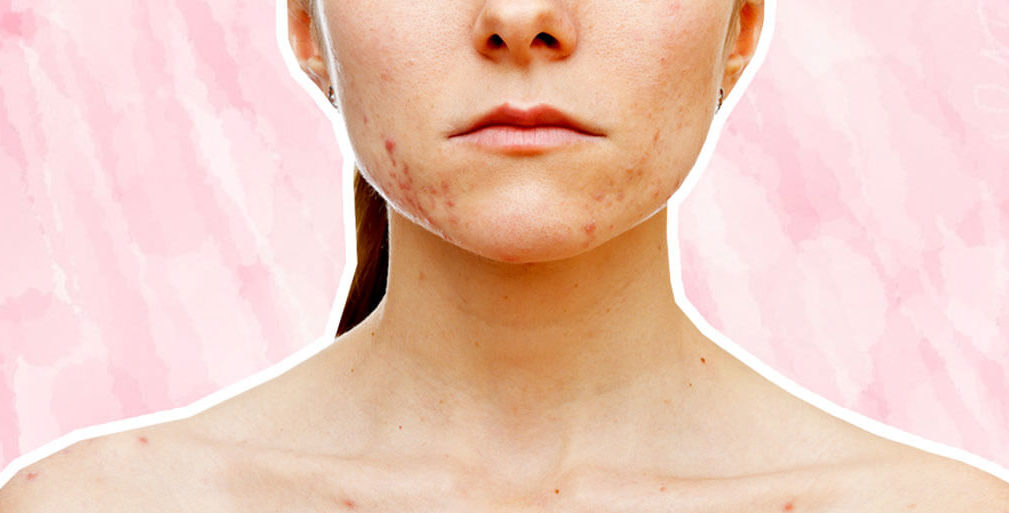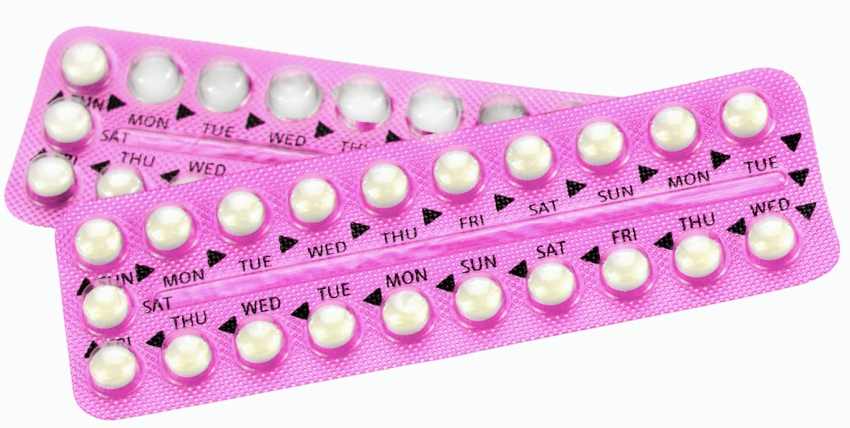This Pill Could Finally Get Rid Of Hormonal Acne

Few things are more infuriating than working overtime on your skincare regimen trying to blast acne, only for your efforts to barely pay off (if they even do at all). It’s the same old story over and over again: someone swears by a hack or a product — or you come across an “acne success story” on Insta or Pinterest, you get your hopes up and throw your money and time at said product or hack, and then walk away with little change in your complexion.
Eventually, it feels like there’s nothing left you can do except throw your hands up and erupt in frustration. So many of us have been there. We’ve been there. In my late 20s, I suddenly started developing a smattering of acne across my jawline and on my cheeks and absolutely nothing worked.
I smeared weird DIY pastes on my skin, swapped out my entire skincare regimen, and applied way too many abrasive acne treatments. It took me years — AKA way too long — before I decided to hit up a dermatologist, who immediately prescribed a little hormonal acne pill called Spironolactone (also referred to as Aldactone). That pill changed everything for me.
Today, with dermatologist insight, we’re answering all your Q’s on what so many people have dubbed the “miracle hormonal acne pill” to see if it could change everything for you, too.
What Is Spironolactone? And How Can It Help Treat Hormonal Acne?
In the same way that Latisse (the serum that grows lashes) was accidentally discovered when glaucoma patients suddenly started walking around with Disney-esque eyelashes, the original use for Spironolactone had nothing to do with hormonal acne.
“Spironolactone is traditionally considered a cardiovascular drug. [In short], it prevents your body from absorbing too much salt and keeps your potassium levels from getting too low, and is used to treat heart failure, high blood pressure, or low potassium levels,” explains Dr. Hadley King, a board-certified dermatologist based in New York City. “When used [to treat these disorders], a side effect was that it had an anti-androgen effect.”
In other words, the pill notably reduced the production of male hormones, including testosterone, which is linked to hormonal acne. This concept led to Spironolactone’s use for hormonal acne in women.
 Source: areeya_ann/Shutterstock
Source: areeya_ann/Shutterstock
“The spironolactone pill [essentially] acts by re-calibrating the male hormones that all women have. Throughout our lives, women’s sensitivity to testosterone changes and that sensitivity can cause cystic acne,” says Dr. Rita Linkner, a board-certified dermatologist at NYC’s Spring Street Dermatology. “Spironolactone works to balance that sensitivity, and very efficaciously [treats hormonal acne] with a success rate of close to 80%. That success rate increases to close to 90% if a birth control pill is also on board.”
Studies dating back to the 1980s have demonstrated the efficacy of spironolactone for acne in women, particularly acne that’s stubborn when it comes to non-hormonal treatments. And when we say “non-hormonal treatments” we’re referring to that pile of topical acne creams and serums that you’ve been dutifully slathering over the years that have barely made a dent in your breakouts.
The bottom line is that if you have hormonal acne, it needs a hormonal treatment. Topical products can certainly help to an extent, but you ultimately need to target the real, underlying issue.
Can Anyone Use Spironolactone To Treat Hormonal Acne?
As you probably gathered, Spironolactone specifically treats hormonal acne in women. That means the ideal candidate is an adult female who’s dealing with a hormonal imbalance.
But what does hormonal acne look like, exactly? Dr. King says, “Hormonal acne primarily consists of cystic acne – [the large, tender bumps that seem to dwell under the surface of your skin] – that affects the lower part of the face and neck, and it usually flares cyclically with the menstrual cycle.”
Spironolactone shouldn’t be taken if you’re pregnant or planning to get pregnant since it directly affects your hormones. In fact, you need to be off it for at least a month before getting pregnant, notes Dr. Linkner. It should also be avoided if you’ve been diagnosed with renal insufficiency, abnormal uterine bleeding, or an estrogen-dependent malignancy. Finally, it shouldn’t be mixed with certain drugs since the combo could potentially lead to potassium levels that are unhealthily low.
Posts You'll Love:
How Long Will It Take For Spironolactone To Treat Hormonal Acne?
“Once you are taking spironolactone, it takes one to two months to see the full effects,” says Dr. Linkner. “I see my patients back one month after they started taking the pill in order to check their bloodwork for electrolyte changes and also to see if their dose needs to be increased.”
Though one to two months is the norm, some people say they experience a notable difference within as little as a few weeks after starting to take spironolactone for their hormonal acne. Others may have to take the pill for up to six months before they see the full results, and dermatologists recommend sticking with it for at least that long in order to give it a fair shake.
You do also need to continue taking spironolactone to reap the benefits, and regular blood checks are necessary to keep an eye on your potassium levels (although only two to four times a year).
Speaking from my own personal experience, I saw a reduction in my own acne within the first two weeks of taking the pill. To say that I was overjoyed was an understatement. It felt like a weight had been lifted off my shoulders every time I looked in the mirror – like I was free from the confines of something I couldn’t ever seem to get a handle on.
I’m not the only one who’s reaped the reward of spironolactone, either. Dr. King says, “This medication has literally been described as life-changing by many of my adult acne female patients who had tried numerous non-hormonal treatments for acne with unimpressive results.”
If you’ve tried every wacky hack and have thrown way too much cash at topical acne treatments that don’t work, it’s totally worth hitting up your dermatologist about spironolactone for at least a consultation. Who knows? This little hormonal acne pill could be the solution you’ve been waiting for.
Let us know if you’ve tried spironolactone in the comments below.























Leave a comment